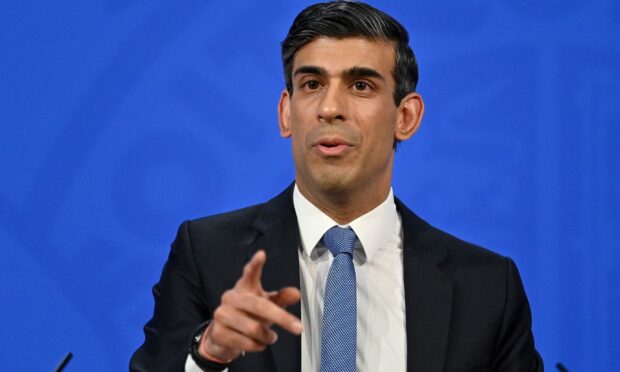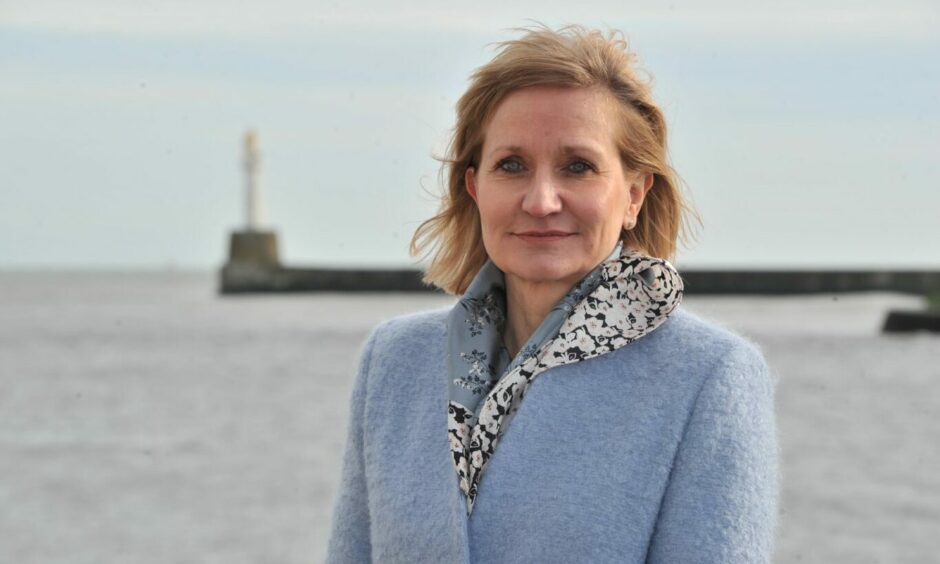Facing the biggest forecasted fall in living standards since records began and a large rise in government debt interest payments, Chancellor Rishi Sunak received a lukewarm welcome for measures set out in his spring statement to grow a “stronger, more secure economy for the future”.
But it is maybe what he didn’t give that was most welcome in the north-east.
The chancellor opted to reject calls to raid the takings of North Sea firms, a move that sparked anger from the opposition benches.
No windfall tax, but North Sea pays ‘more than expected’
Despite North Sea taxes looking ripe for the taking – receipts for the Treasury are set to more than double to £7.8 billion in 22/23, up from £3.1bn in the current year, according to the Office for Budget Responsibility (OBR).
This would represent a figure “well over ten times higher than pre-pandemic receipts” in 2019/20 and the “highest fiscal return from the North Sea since 2010/11” when £9.6bn was collected, the budget watchdog said.
The forecast is based on average oil and gas futures prices over the next three years from the first week of the invasion of Ukraine.
Oil and gas prices have surged to their highest in more than a decade in the wake of the invasion.
Shadow Chancellor Rachel Reeves accused the chancellor of not understanding the “scale of the challenge” being faced by working families.
She said: “Who does the Chancellor prioritise? He continues to defend the record profits of oil and gas producers, who themselves admit that they have more money than they know what to do with.”
Mr Sunak responded and said it was “telling that she opened her statement, yet again calling for a windfall tax”.
He added: “We know on this side of the House that we want to encourage more investment in the North Sea.
“We want more domestic energy, we want more jobs for the UK and a windfall tax would put that off.”
Deirdre Michie, chief executive of the North Sea trade body Offshore Energies UK, said the level of taxes oil and gas companies will pay means they welcomed a “predictable and stable fiscal regime”.
“The OBR figures published today show that the oil and gas industry is forecasted to pay £15.7billion in taxes over the next three years, significantly more than expected last October. £11billion of that is forecasted to be paid by the end of 2023.
“A predictable and stable fiscal regime will ensure industry continues to attract investment in energy supplies, support energy security, and accelerate net zero.
“We will work with the government as they look to encourage capital investment across the UK in support of this.
“Our industry needs long term confidence in the UK, allowing us to make major investment decisions in both oil and gas production and the new low carbon technologies including carbon capture and storage, hydrogen and offshore wind.”
No rabbit in the hat for north-east CCS
But hopes for support for developing renewable energies in the north-east were dashed.
Storegga is one of the lead partners in the Scottish Cluster which is behind proposals to develop a CCS and hydrogen scheme for the north-east, a plan that was snubbed in a recent UK government competition worth £1bn. The project is estimated to create tens of thousands of jobs.
Nick Cooper, CEO of Storegga, said the energy industry would be “largely disappointed” by the chancellor’s statement.
“There was no rabbit out of the hat for carbon capture and storage and hydrogen as hoped.
“We have an opportunity to decarbonise the British energy industry, whilst also securing supply.
“But today’s statement does not give us the broader decarbonisation roll out we so desperately need.”
For people keen on seeing government investment in saving the planet, the mini-budget set out support for home energy efficiency measures which Mr Sunak said would also make a “big difference” to bills.
The 5% rate of VAT will be scrapped for energy efficiency measures such as solar panels, heat pumps and insulation to tackle high energy bills.
A family having a solar panel installed could see tax savings worth over £1,000, and savings on their energy bill of over £300 per year, Mr Sunak said.
Brian Berry, chief executive of the Federation of Master Builders (FMB) said the news was good for householders as well as the construction industry.
“Historically, consumers have not been properly incentivised to commission green upgrades to their homes,” he said.
“This VAT cut will help householders insulate their home at a time when energy bills are escalating.
“It will also provide a much-needed boost to local builders operating in the retrofit market. The Government now needs to build on the VAT cut and implement a long term National Retrofit Strategy to provide business certainty.”
Only an inch of breathing space
The Federation of Small Businesses (FSB) in Scotland gave many of the measures a muted welcome but warned more may need to be done to help local firms absorb rising energy costs.
The chancellor said employment allowance will rise to £5,000 from next month, which he described as a “new tax cut” worth up to £1,000 for half a million for small businesses.
Andrew McRae, the FSB’s policy chair, said: “The Chancellor’s measures today will buy Scotland’s small businesses an inch of breathing space.
“Taking action to increase the employment allowance, as FSB suggested, will help local and independent businesses absorb some of the increasing costs of sustaining jobs.
“And by reducing fuel duty, the UK Government is helping every small business reliant upon their vehicle for their livelihood, like the rural tour guide that drives a minibus or the plumber who transports their tools in their van.
“There was little however for smaller firms facing overwhelming increases in their energy bills.
“This was a glaring omission when these operators have none of the protections of households nor the negotiating power of big businesses.
“Action is still required on this front or we face businesses that survived Covid being pushed to the brink by soaring utility costs.”
Number crunching
The Office for Budget Responsibility (OBR) downgraded growth in gross domestic product – a measure of the size of the economy – from the 6% forecast for this year at the time of the Budget in October to 3.8%.
Next year’s growth forecast has been downgraded from 2.1% to 1.8%.
Inflation is forecast to hit 8.7% in the fourth quarter of 2022 – a forty-year high – and to average 7.4% over the year, with wages failing to keep pace with rising prices.
The OBR said inflation – combined with rising taxes – means disposable income for households is set to slump by the largest amount in a single year since records began in 1956-57.
Meanwhile, the UK’s £83bn annual cost of servicing debt will next year “exceed the budgets for day-to-day departmental spending on schools, the Home Office and the Ministry of Justice combined.



